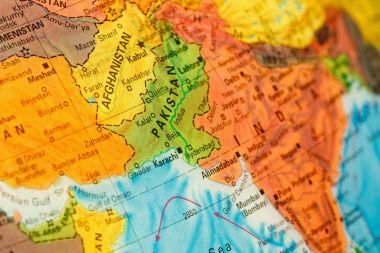Pakistan's Christians 'living in fear' after Sweden Koran burning

Christians in Pakistan are appealing for prayers amid threats to their safety following a controversial protest against Islam in Sweden in which a Koran was set on fire.
A copy of Islam's holy book was set on fire by an Iraqi Christian immigrant outside a Stockholm mosque during the major Muslim holiday of Eid al-Adha, sparking global condemnation.
In Pakistan, Prime Minister Shehbaz Sharif called for a day of protests on Friday to coincide with a debate in the country's parliament about Koran burning.
The Centre for Legal Aid, Assistance and Settlement (CLAAS), which provides legal and practical aid to persecuted Christians in Pakistan, said the protest was "regrettable" and that the Christian community is now facing increased threats to their churches and communities, despite having strongly spoken out against the Koran burning.
According to CLAAS, the banned extremist group Lashkar-e-Jhangvi (LeJ) has called for violent retribution against Pakistan's Christians, including attacks on churches and suicide bombings.
Its spokesperson Naseer Raisani is reported to have chillingly announced that "no church or a Christian will remain safe in Pakistan".
Nasir Saeed, Director of CLAAS-UK, said that Pakistan's Christians are "living in fear" after the stunt.
He is urging the Pakistani government to protect the country's Christian minority. He is also asking that the international community raise the safety of Christians with Pakistan's leaders as a matter of urgency.
"It is crucial that the Pakistani government takes immediate measures to ensure the safety and protection of the Christian community, their homes, and places of worship," he said.
Saeed said it was a common assumption that Pakistani Christians are linked with the West, making them vulnerable every time such incidents occur in Western countries.
He is appealing to the global Church to keep Pakistani Christians in their prayers.
"It is deeply unfortunate that 75 years after the formation of Pakistan, a country founded with the support of Christians, they are still considered outsiders and denied equal citizenship rights," he continued.
"This goes against the very principles espoused by the founder of Pakistan, Quaid i Azam Muhammad Ali Jinnah."











